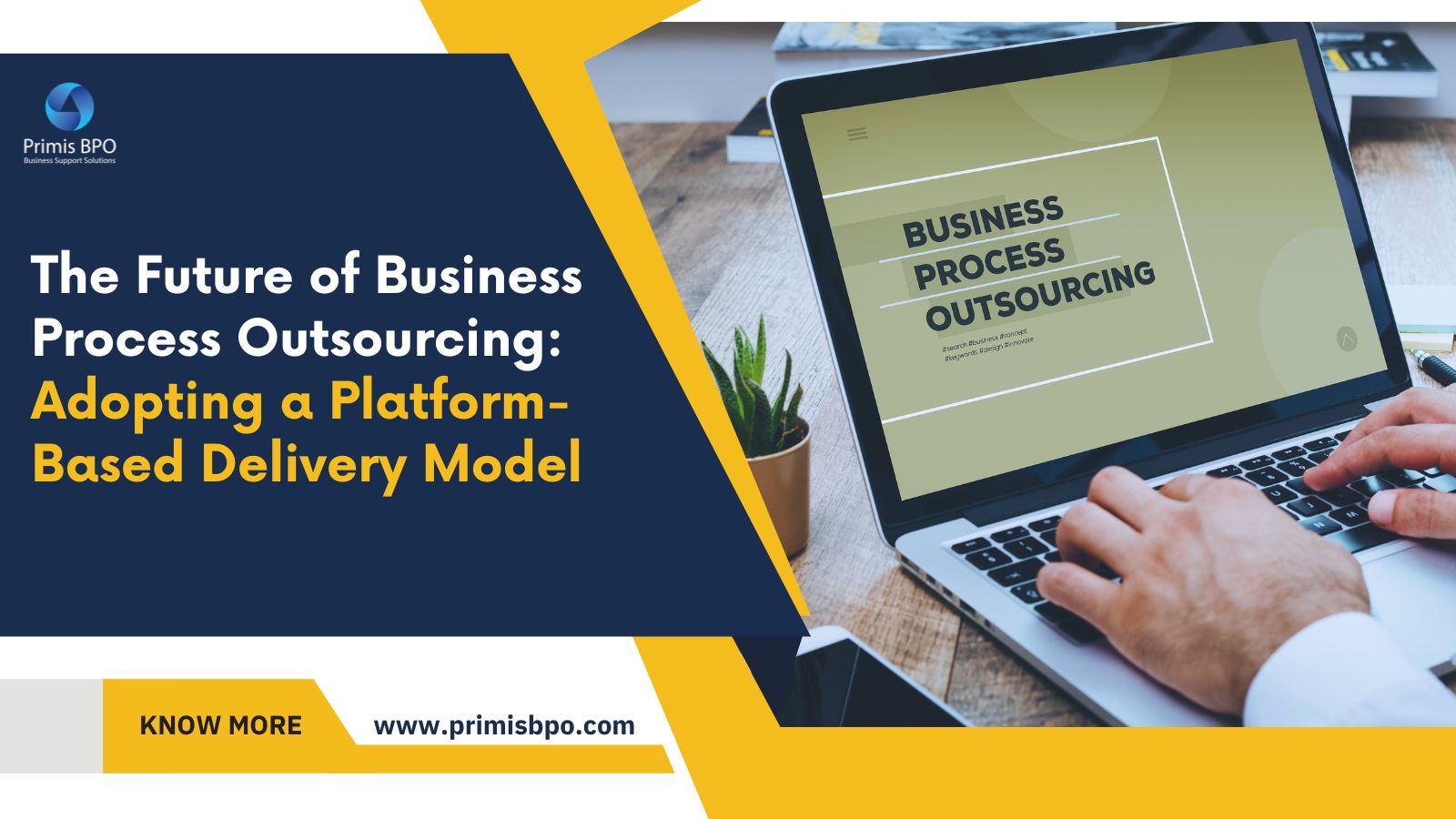
Key Takeaways:
- BPO teams are well-equipped to work seamlessly with clients' existing platforms, offering expertise to optimize operations.
- Additionally, their partnerships with platform providers enable them to offer tailored solutions for businesses lacking a robust platform infrastructure.
- Whether businesses require a new platform or enhancements to their existing one, BPOs provide platform-based delivery models designed to streamline operations, improve efficiency, and deliver superior customer experiences.
The Shift That’s Redefining Outsourcing
Consider a world where business operations thrive in a seamlessly connected ecosystem, transforming traditional service delivery with agile, scalable, and customer- centric platforms. But this isn’t just a game-changer for tech startups; the business process outsourcing (BPO) industry is now stepping into the spotlight.
Gone are the days of fragmented systems and manual inefficiencies. Today, BPO firms are moving toward integrated digital platforms that blend flexibility, speed, and innovation to deliver exceptional client value.
This shift is a transformation redefining the future of outsourcing.
In this blog, we’ll explore how platform-based delivery models redefine the BPO landscape and the strategic steps needed to build one that ensures a competitive edge and sustainable growth.
The Rise of the Platform-Based Model
In today’s digital economy, platforms have become the new operating systems driving business transformation. For BPO firms, adopting platform-based models along with human oversight for critical tasks is turning traditional processes into dynamic, tech- enabled ecosystems. Powered by the latest technologies like AI, cloud, etc., these platforms seamlessly connect stakeholders while digitizing value streams.
As per a recent report, digitalization in BPO market size was valued at USD 29,817.0 Million in 2022 and is projected to grow from USD 37,230.6 Million in 2023 to USD 117,953.2 Million by 2032, exhibiting a compound annual growth rate (CAGR) of 13.7% during the forecast period.
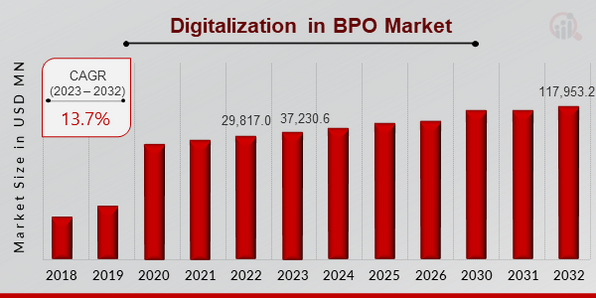
The result?
Businesses achieve unprecedented agility, rapidly scale operations, and meet evolving customer demands, redefining the pace of innovation.
Why do BPO Firms Need Platforms?
BPO firms handle complex processes for industries like insurance, healthcare, legal, etc. These sectors demand precision, speed, and adaptability. A platform-based delivery model equips BPOs to meet these demands while staying ahead of industry disruptions.
Key Advantages:
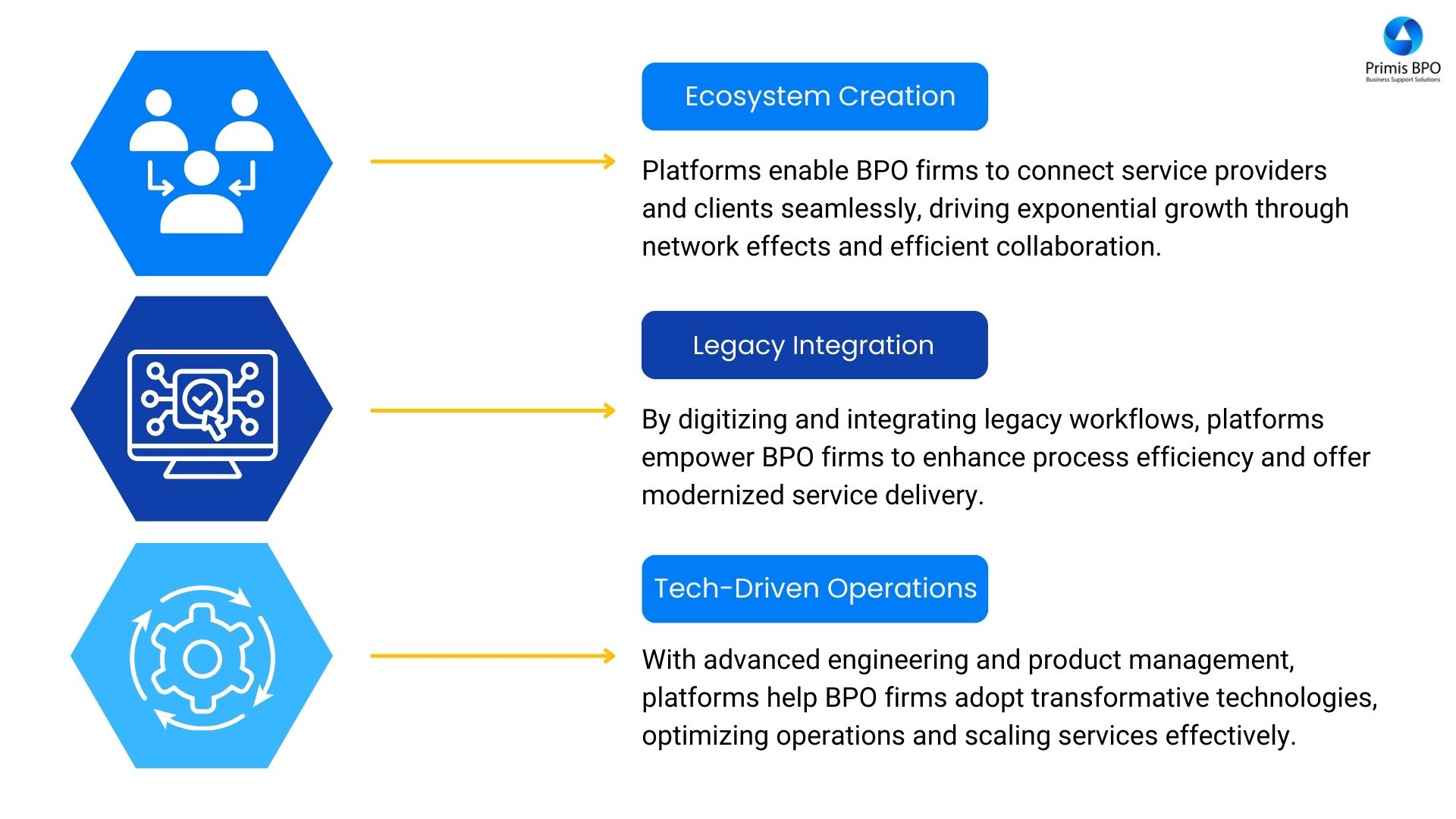
Adopting a Platform-Based Approach: Six Strategic Considerations for BPOs
In the BPO industry, transitioning to a platform-based delivery model is a strategic transformation that redefines service delivery, scalability, and customer value. To make this transition successful, BPO organizations must align their operational, technological, and cultural frameworks.
Below are six critical considerations for adopting a robust platform-based approach in the BPO sector:
1. Define Strategic Intent
A well-defined strategic intent is the foundation of any successful platform adoption. Begin by aligning the platform’s capabilities with your organization’s goals, such as improving service efficiency, scaling operations, or enhancing client satisfaction. Create a clear roadmap that prioritizes investments, resource allocation, and employee enablement strategies.
For BPOs, a purpose-driven vision ensures seamless alignment across teams and empowers them to deliver client-focused results.
2. Modernize Applications
Transitioning to a platform-based delivery model goes beyond migrating legacy systems. It requires reimagining these systems for a digital-first world. Conduct an Application Portfolio Rationalization (APR) to identify applications that need modernization, replacement, or retirement.
In the BPO context, leveraging tools like value-stream mapping can uncover inefficiencies in workflows, helping eliminate bottlenecks and reduce process redundancies for smoother operations.
3. Embrace a Client-Centric Mindset
BPOs must evolve from being service providers to becoming enablers of value for their clients. This shift prioritizes scalability, usability, and security in service delivery. Techniques like design thinking and customer journey mapping can help uncover client pain points, enabling BPOs to tailor solutions that directly address these needs.
Adopting a client-first approach ensures that the platform aligns with end-user expectations while fostering long-term partnerships.
4. Leverage AI, ML, and Robotic Process Automation
A platform's success in the BPO space heavily depends on its ability to integrate advanced technologies. Implementing advanced technologies, artificial intelligence (AI), machine learning (ML), and robotic process automation enhances operational efficiency and reduces manual intervention.
Automating repetitive tasks not only reduces manual errors but also frees up resources for value-adding activities.
5. Focus on Collaborative Frameworks
BPO platforms must be adaptable to evolving client demands. Adopting Agile and DevOps practices allows for faster deployment of updates, ensuring continuous service improvement.
For BPOs, starting with small, incremental changes helps manage risks effectively. Establish collaborative governance frameworks to align technical teams with business goals, ensuring that milestones are met without compromising quality.
6. Cultivate Organizational Transparency
The shift to a platform-based model in BPOs often faces resistance due to legacy mindsets. Overcome this by fostering a culture of experimentation, collaboration, and innovation. Encourage open communication between technical and operational teams to ensure alignment at every stage.
Promote upskilling initiatives, reward innovation, and embrace a fail-fast, fail-early philosophy to encourage employees to adapt to platform-centric practices.
The Future Is Platform-Centric
The BPO industry is entering an era driven by platform-based delivery models. Firms that embrace this approach will optimize their processes and develop new opportunities for innovation and growth.
For example, platforms allow insurers to digitize policy renewals, making the process faster and more customer-friendly. This ability to adapt and innovate ensures relevance in a highly competitive market.
So, are you looking to partner with an outsourcing provider offering platform-based services? Connect with Primis! It’s time to act, innovate, and lead in the digital age.
Recent Blogs

Optimizing Auto Insurance Underwriting Through Outsourced AI-Driven Risk Intelligence
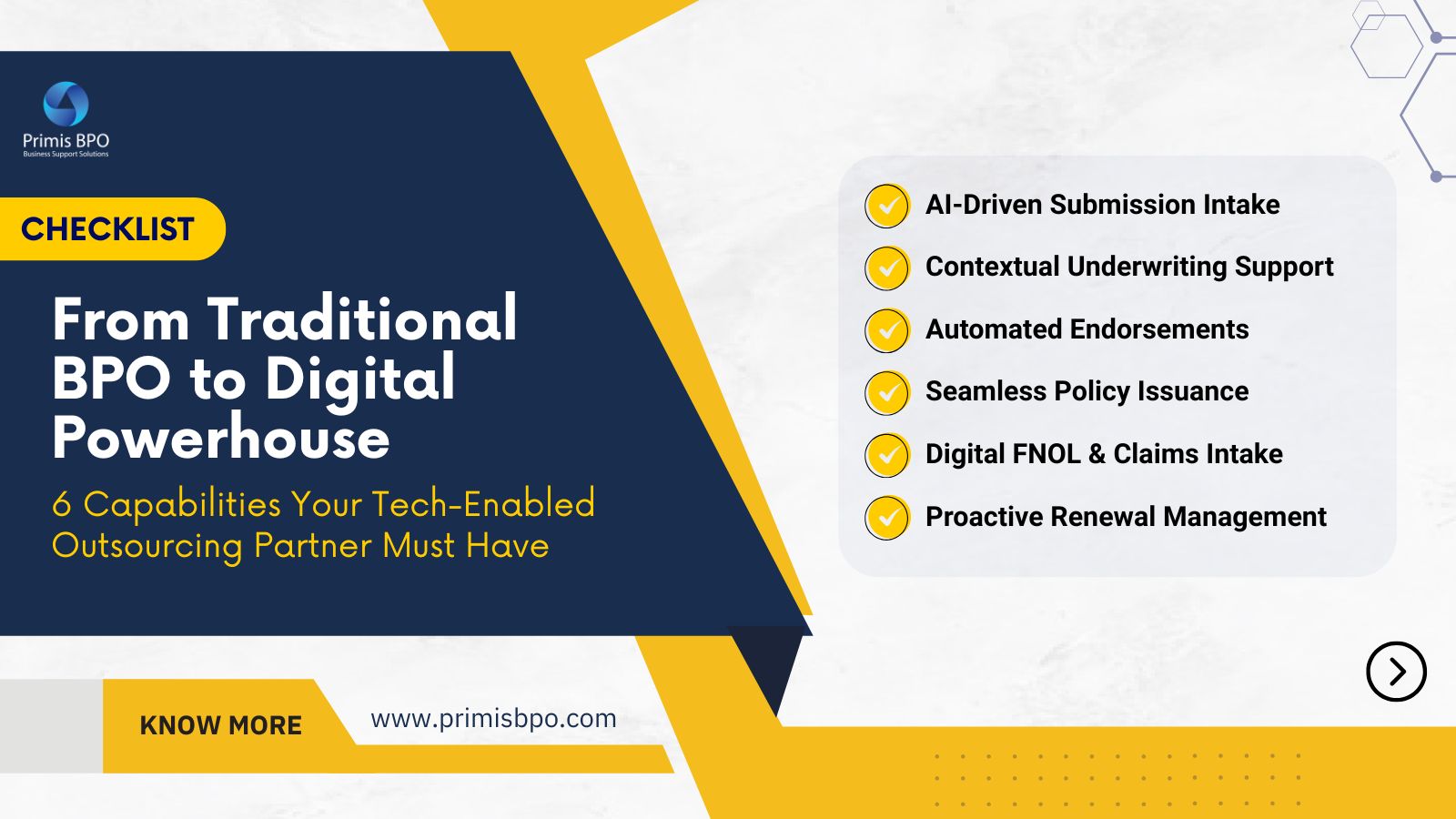
[Checklist] From Traditional BPO to Digital Powerhouse: 6 Capabilities Your Tech-Enabled Outsourcing Partner Must Have

Outsourcing AI-Enabled Property Risk Analysis
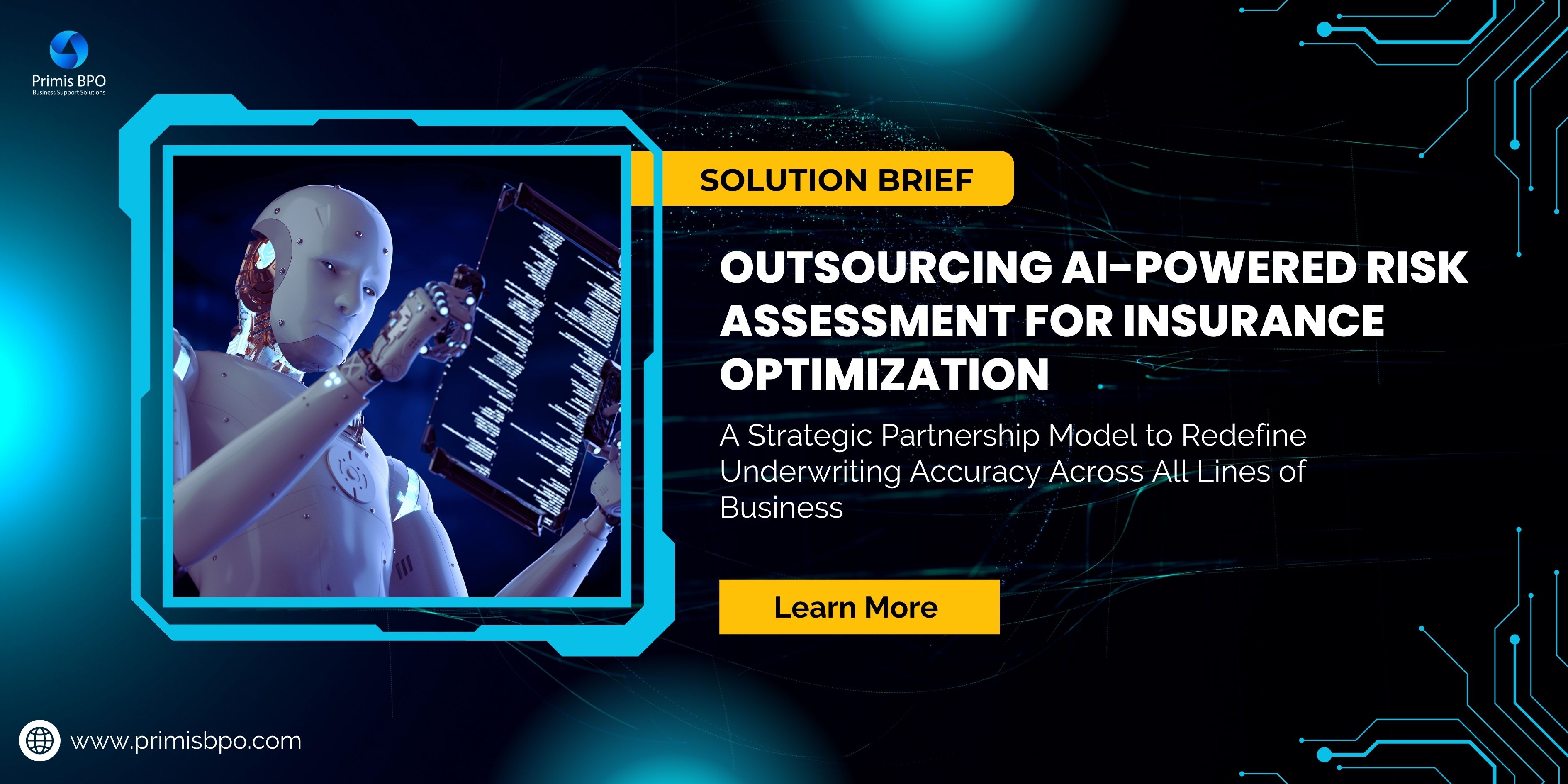
Outsourcing AI-Powered Risk Assessment for Insurance Optimization

Augmented Underwriting: When Human Expertise Meets Digital Intelligence